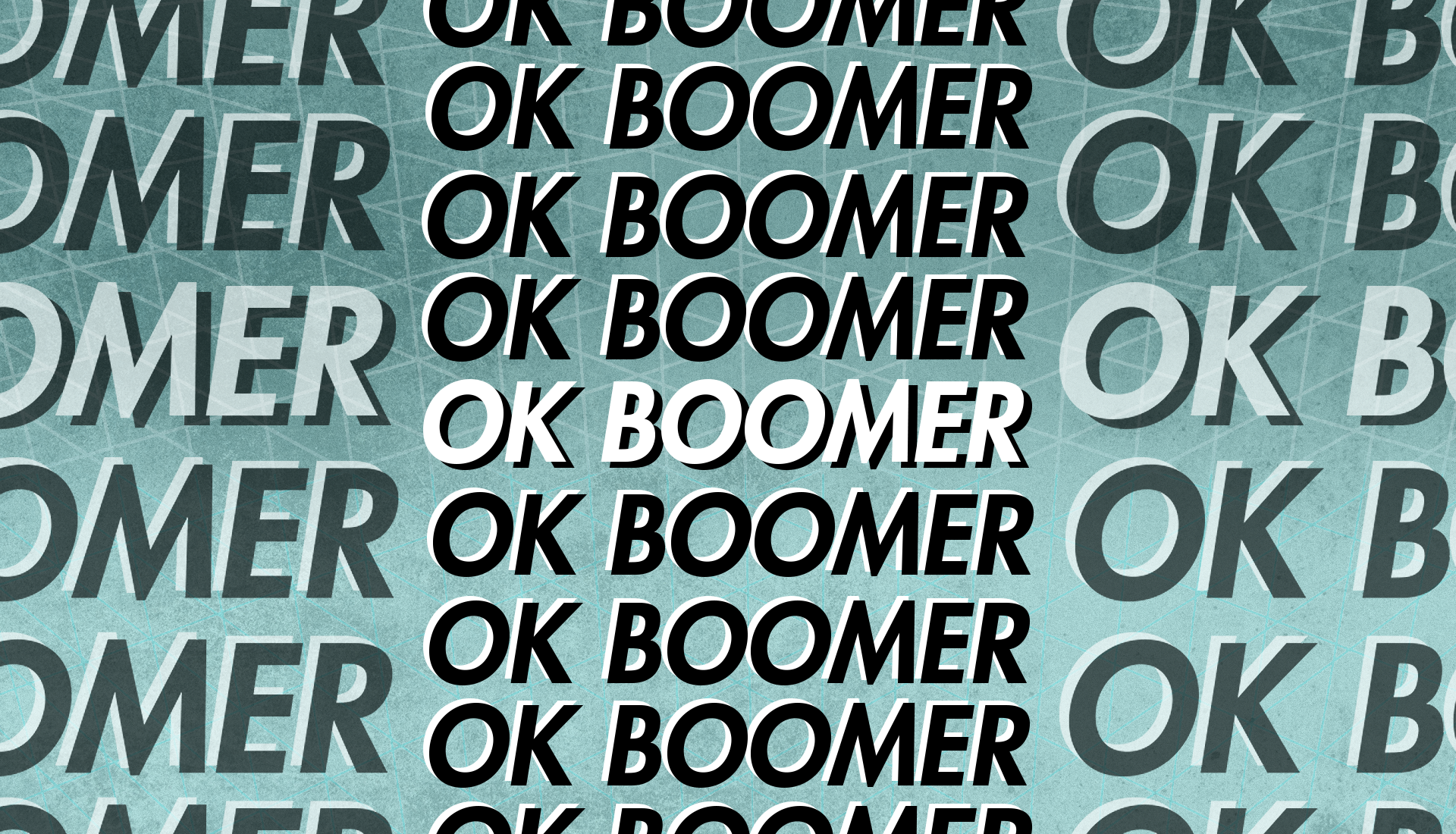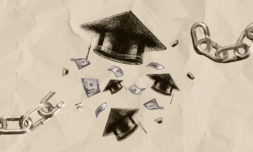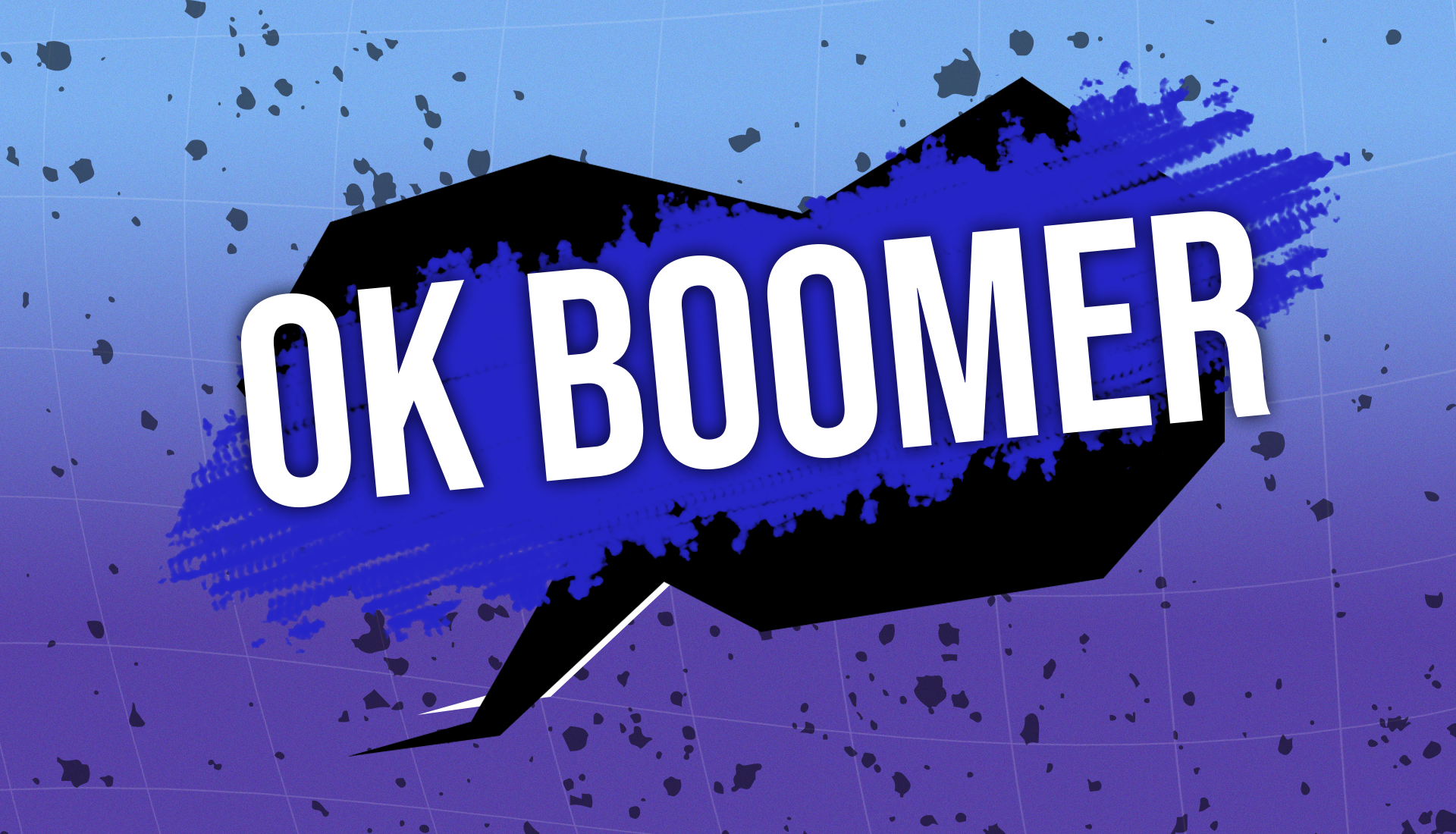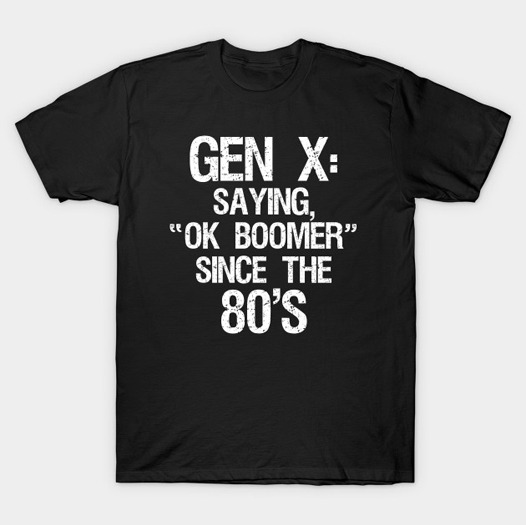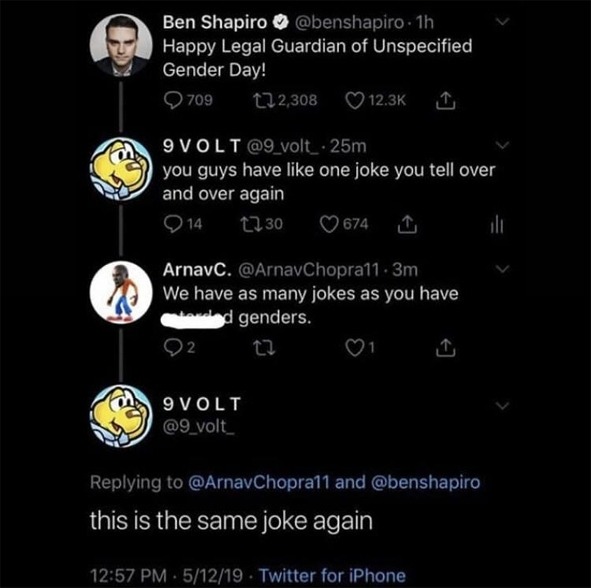For the first time Gen Z’s have found an independent voice, and its message is clear: we’re sick of your sh*t.
As a 23-year-old, I spent a lot of my adolescence hearing about millennials. Specifically, I heard a lot about how they were persistently ruining the planet through over-indulgence, the internet, bad spending habits, and general ungratefulness. As someone who falls directly in the crevice between the millennials and their successors Gen Z, it seemed to me that I was simultaneously taking a bullocking for ruining a job/housing market I was too young to enter, and receiving an instruction manual on how not to be from people who were too old to understand me.


The ‘way to be’, according to the radio jockeys and columnists and media personalities who touted the many pitfalls of the millennial generation – occasionally turning inward in faux reflection about where they as boomers went wrong in raising us (them) to be such entitled brats – was to stop acting independently and to fall in line the society they’d created. Go to university just like they did (albeit at an increased cost of 212%), work dutifully in their companies, vote for them in elections, move out at an early age and support the housing market, all whilst giving them lots of grandkids that they’d happily tell us we were raising wrong.
This was, of course, notwithstanding the fact that they’d hyper-inflated the economy, embedded inequality into state systems like a metastasising cancer, defaulted the global market by pretending money existed that didn’t, and pumped carbon into the atmosphere like it was an overstuffed jam donut.
The part of me that was Gen Z, that only barely remembers 9/11 but really remembers the financial crash of ’08 and can’t in all earnestness remember a time pre-social media, looked at millennials with a kind of awed terror. I was almost impressed with the verve with which they’d selfishly shunned the easy ride through life given to them by their parents, and at the same time I really, really didn’t want to be like them.
I wanted to be part of a good generation, about whom columnists would write ‘this is the generation who didn’t screw everything up!’ I wanted to be the good little young person who thought about the future, about what I could do for my country, and who thought of more than just myself.
It was probably all the hubbub caused in the wake of Al Gore’s An Inconvenient Truth that caused me to start questioning the label that had been slapped onto my peers. I was only 10 when it came out, but when I saw it a few years later I was struck at the sight of an adult, a real bonafide boomer, pointing to other adults – the politicians and journos and businessmen I’d heard my parents complain about but would never have thought capable of outright lying – and accusing them of acting in bad faith.
In response to An Inconvenient Truth I was made aware of climate change deniers – people who went against the laws of the universe I’d been taught were unimpeachable – and how they often had financial incentives to do so. And THIS was the generation that was telling young people they were ruining the economy.
Since then, I’ve watched my millennial contemporaries, my sister and my cousins and various friends, try to struggle their way through adulthood whilst wearing the lead boots that is the boomer economy. I’ve watched them struggle to get jobs as boomers refuse to retire, trudge their way through a brutal rental market only to get called greedy by older landlords whose contemporaries won’t pay them more than minimum wage as the banks they ruined are bailed out by governments they run.
I’ve seen the social progress of my peers in areas like LGBT+ and reproductive rights and tackling Islamophobia reversed by the seemingly never-ending stream of boomers elected into office. I’ve seen their spirits crushed time and time again, and as they find solace in their peers on the internet and in meme culture, I’ve seen them called tech-addled and detached from reality.
Now, the Gen Zer in me looks at millennials with fear for a different reason. The fear that we too will be so mischaracterised.
That’s why the ‘okay boomer’ meme feels so important to us. The bulk of Gen Z are just now coming of age, gaining a sense of justice, and starting to see the world around them with clear vision. The results of this can be seen in the vigour and fury with which today’s teens have thrown themselves into affirmative action. Extinction rebellion, #strikeforschools, Hong Kong: the world is currently pulsating with protests. Our anger at the boomers clinging to power when they should have passed the baton years ago (Trump is 73 for goodness sake! 73!), and our determination to be heard, can all be boiled down into one tiny, simple phrase: ‘okay boomer’.
https://twitter.com/vernelldaye/status/1191038292797489152
Okay. That’s it. You’re done. We don’t have to listen to you anymore. We’re old enough now to see through your gaslighting, we’re old enough to form our own opinions, and soon we’ll be old enough to challenge you in the polls. Our millennial counterparts already are. Your time in the spotlight is over, and your time hogging discourse has come to an end.
Okay boomer is the ultimate putdown: the more outraged think pieces and angry tweets boomers respond with, the funnier the retort becomes. The longer your rant about generational equality, and the ‘guidance and feedback based on… accumulated wisdom’ that Gen Z are missing out on by alienating boomers, the more devastating the ‘okay boomer’ comeback becomes.
The fact that boomers are not quite grasping the point of ‘okay boomer’ is fitting. The ever-fluctuating boundaries of memehood has come to characterise a generation whose been taught more absurdity by the House of Commons than by Pinter or Picasso and in the face of this has had to choose whether to laugh or cry. But here’s the thing about memes: they’re not meant to be taken so dead seriously. And by becoming so upset about the whole thing, highlighting once again that they just don’t get it, boomers are in some ways proving the meme’s point. They simply don’t understand anything of value to young people.


Ultimately, ‘okay boomer’ is a joke. And good comedy is supposed to prompt reflection on privilege and power structures, bringing to light the unsaid. It’s supposed to serve as an icebreaker for conversation about things we take for granted, things that we don’t question about the culture and society we’re deeply embedded in. That’s how this genre of human communication has worked for years.
But if boomers are insisting on taking okay boomer personally – and hey, maybe they should – then I’ll respond in kind.
Boomers are now realising that their position as the most opinionated and powerful generation on Earth is coming to an end, and they’re not happy about it. Moving past the tweets trying to equate the word ‘boomer’ to the N-word (comedian John Mulaney’s point that ‘if you’re comparing the badness of two words , and you won’t even say one of them, that’s the worse word’ comes to mind) Megan Gerhardt wrote one of the more considered critiques of the trend for NBC, where she argued that ‘if we can move past our defensive mindset, these same differences [between generations] bring with them incredible opportunity’.
Essentially, the older generation are claiming that after all this time of them ruining the planet and framing millennials for it they want to ‘team up’ with Gen Z to fix it. ‘We’re stronger together guys’ they cry with all the conviction of a comic book supervillain whose just been caught executing their evil plot and is now trying to convince the hero they were on the same side the whole time.
In a way, they’re right. As generations, we are stronger together. Gen Z, millennials, and Gen X make up far more than half the population of the planet. Rather than retiring out of the system, we’re just grabbing hold of the controls. And about ‘okay boomer’ we’re absolutely on the same page.









